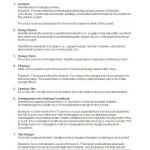```html
Interior Designers in Massachusetts: Crafting Spaces that Reflect Life
Massachusetts, steeped in history and brimming with modern innovation, presents a unique canvas for interior design. From the historic homes of Boston's Beacon Hill to the contemporary lofts of the Seaport District and the charming cottages of Cape Cod, the state's diverse architectural landscape demands a sophisticated understanding of design principles and a sensitivity to local aesthetics. Interior designers in Massachusetts are tasked with creating spaces that not only meet functional needs but also resonate with the character of the region and the individual preferences of their clients.
The role of an interior designer in Massachusetts extends far beyond mere decoration. It encompasses a comprehensive approach to space planning, material selection, lighting design, and project management. A qualified designer possesses a deep knowledge of building codes, accessibility standards, and sustainable design practices, ensuring that every project is not only aesthetically pleasing but also safe, functional, and environmentally responsible.
Understanding the Scope of Interior Design Services
Interior design services in Massachusetts are highly varied, catering to a wide range of project types and budgets. Some designers specialize in residential projects, focusing on creating comfortable and inviting homes for families and individuals. Others concentrate on commercial spaces, designing offices, retail stores, restaurants, and hospitality venues that enhance productivity, brand identity, and customer experience.
Within these broader categories, further specialization is common. Some designers may focus on kitchen and bath renovations, while others may specialize in historic preservation or sustainable design. The best way to find the right designer is to identify specific project needs and then research designers whose expertise aligns with those requirements. This often involves reviewing design portfolios, reading client testimonials, and scheduling initial consultations to discuss project goals and budgets.
The services offered by interior designers typically include: space planning, which involves determining the optimal layout and flow of a space; furniture selection and procurement, sourcing appropriate furniture, fixtures, and equipment; material selection, carefully choosing fabrics, finishes, and other materials that complement the design aesthetic and meet functional requirements; lighting design, creating a lighting plan that enhances the ambiance and functionality of the space; and project management, overseeing the entire design process from conception to completion, coordinating with contractors, and ensuring that the project stays on schedule and within budget.
The initial consultation is a crucial step in the design process. During this meeting, the designer will gather information about the client's lifestyle, preferences, and budget. The designer will also assess the existing space and identify any challenges or opportunities. This information is used to develop a design concept that reflects the client's vision and meets their specific needs.
Key Considerations When Choosing an Interior Designer in Massachusetts
Selecting the right interior designer is a critical decision that can significantly impact the success of a project. Several factors should be carefully considered before making a choice. Experience and expertise are paramount. A designer with a proven track record of successful projects in a similar style or scope is more likely to deliver satisfactory results.
Portfolio review is equally important. Examining a designer's portfolio provides valuable insights into their aesthetic sensibilities, design skills, and ability to execute projects effectively. Pay close attention to projects that resemble the desired style and scope of the current project. Be sure to ask about the specific role the designer played in each project.
Communication and collaboration skills are also essential. The design process involves a significant amount of communication and collaboration between the designer and the client. A designer who is a good listener, communicator, and collaborator will be better able to understand the client's needs and preferences and translate them into a cohesive design plan.
Budget is, of course, a key consideration. Interior design services can range in cost depending on the scope of the project, the designer's experience, and the complexity of the design. It is important to establish a clear budget upfront and discuss it openly with potential designers. Ask for a detailed breakdown of fees and expenses to avoid any surprises later on.
Furthermore, it is advantageous to inquire about the designer's network of contractors and suppliers. Established designers typically have relationships with reliable contractors, furniture suppliers, and other industry professionals, which can streamline the project and ensure high-quality workmanship. Checking references from previous clients is crucial for validating the designer's reputation and assessing their ability to deliver on their promises.
Licensing and certification play a role in verifying the designer's qualifications. While Massachusetts does not currently require mandatory licensing for interior designers, professional certifications such as those offered by the National Council for Interior Design Qualification (NCIDQ) can attest to a designer's competency and adherence to professional standards. Membership in professional organizations such as the American Society of Interior Designers (ASID) can also indicate a commitment to ongoing education and professional development.
Navigating the Design Process in Massachusetts
The interior design process typically follows a structured approach, beginning with an initial consultation and progressing through design development, construction documentation, and project implementation. The initial consultation is a crucial opportunity for the designer to understand the client's needs, preferences, and budget. This information is used to develop a design concept that serves as the foundation for the entire project.
The design development phase involves translating the initial concept into a detailed design plan, including floor plans, elevations, furniture layouts, and material selections. This phase often involves multiple revisions and refinements to ensure that the design meets the client's expectations. Once the design is finalized, the designer prepares construction documentation, which includes detailed drawings and specifications for contractors to use during the construction phase.
Project implementation involves overseeing the construction process, coordinating with contractors, and ensuring that the design is executed according to plan. The designer may also be responsible for procuring furniture, fixtures, and equipment, and overseeing the installation process. Throughout the project, the designer acts as a liaison between the client and the contractors, ensuring clear communication and resolving any issues that may arise.
Throughout each phase, open communication is essential. The client should feel comfortable asking questions and providing feedback. The designer should be proactive in keeping the client informed of the project's progress and any potential challenges. Regular site visits are also important to ensure that the construction is proceeding according to plan and that the design is being implemented correctly.
Navigating the specific challenges of designing in Massachusetts requires knowledge of local building codes, historic preservation guidelines, and environmental regulations. Many properties, especially in historic districts, are subject to strict regulations that can impact design choices. Designers working in these areas must be familiar with these regulations and be able to navigate the approval process effectively.
Furthermore, the climate in Massachusetts can present unique design challenges. Harsh winters can impact material selection and building performance. Sustainable design practices are becoming increasingly important in Massachusetts, and designers are incorporating energy-efficient materials and technologies into their projects to reduce environmental impact.
Ultimately, the success of an interior design project in Massachusetts hinges on careful planning, effective communication, and a strong partnership between the designer and the client. By understanding the scope of services, considering key selection criteria, and navigating the design process effectively, clients can create spaces that truly reflect their lives and enhance their well-being.
```
10 Best Interior Designers In Massachusetts

Interior Design Firm Falmouth Massachusetts 508 888 8688 Casabella

Interior Design Designer In Boston Ma By Mandarina Studio

Interior Design Firm Mash Massachusetts 508 888 8688 Casabella

Interior Designer Needham Massachusetts Holly Joe Interiors

Will A Designer Work With What I Own Linda Merrill Interior Decorator South Shore Massachusetts

Interior Design Firm Osterville Massachusetts 508 888 8688 Casabella

7 Top Interior Designers In Massachusetts That Are Rocking Right Now

Home Interior Design Guide Seacoast Lately

Boston Interior Design Firm Crafting Personalized Spaces








